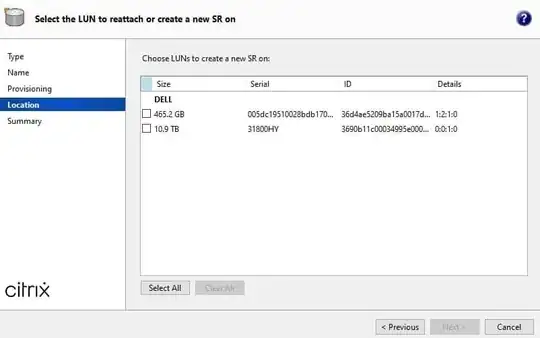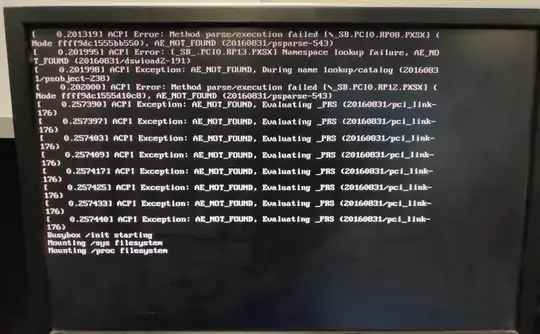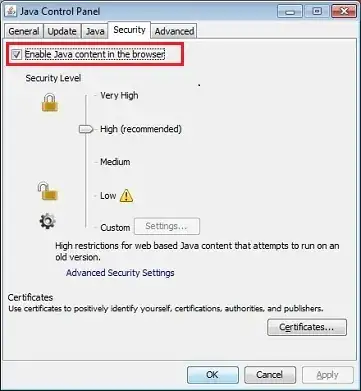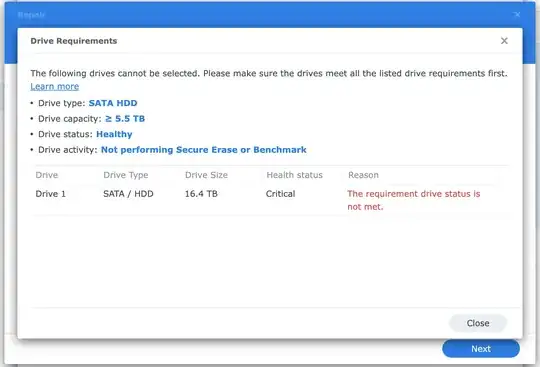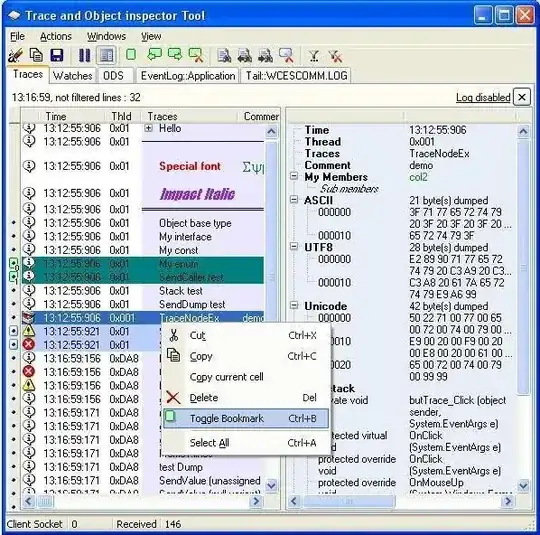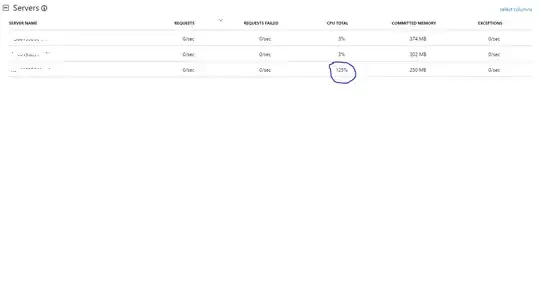I am trying to install a new HDD in my DS1515+. The hard drives are brand new Seagate Exos X.
I have bought 3 of these drives, and 1 of them works fine and is now part of my storage pool, but the other 2 gives me an error when I install them in the DS. The error is "Multiple reset command errors have occurred...".
From the Storage Manager, I cannot continue and the system won't let me intialize the disk to make it part of a storage pool. I've tried secure erasing one of the disks, with no luck.
I've looked in the dmesg output from the linux terminal of the DS, with no errors for the disks that cause me trouble.
But I can see in all the extended views that no errors regarding reset/reidentification/reconnection etc have occurred. So why is Storage Manager stuck on the Critical status?
Both disks work completely fine when connected to another computer, so I believe they are physically 100% OK.
I suspect that the disks are rejected by the DS because of some historic data. First, I tried connecting the two problematic disks using the 2 ESATA ports of the DS1515+, but the disks did never appear in the storage manager, and I saw some reset/connection errors in the dmesg log (using the linux terminal). This was probably because of older unstable ESATA cables. But my theory is that these events when the disks were connected by ESATA, has caused the DS to "blacklist" these disks, as they have once caused "reset commands" due to flaky cables.
How can I force the DS to accept these disk and let me use them? Is there a way to reset any historic knowledge about these disks, and let the DS re-evaluate them?
